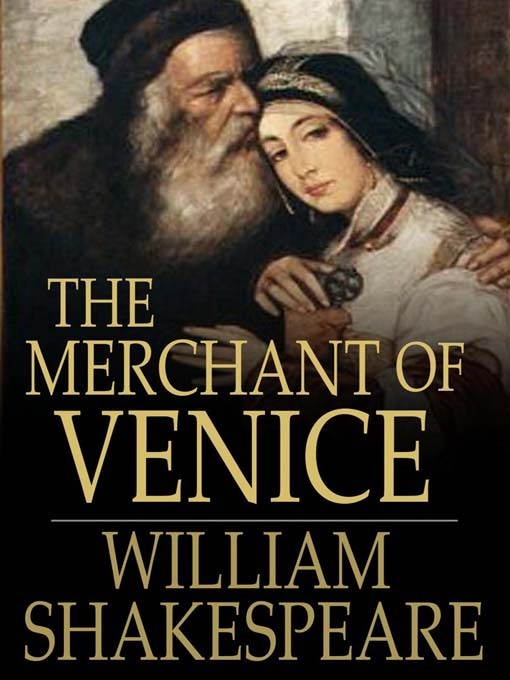Hath
not a Jew hands,
organs,
dimensions, senses, affections, passions;
fed
with the same food,
hurt
with the same weapons,
subject
to the same diseases,
heal'd
by the same means,
warm'd
and cool'd by the same winter and summer, as a Christian is?
If
you prick us, do we not bleed?
If
you tickle us, do we not laugh?
If
you poison us, do we not die?
And
if you wrong us, do we not revenge?
If we
are like you in the rest...
...we
will resemble you in that."
These
are the words from tormenting and tormented Jewish moneylender, Shylock, one of
the most complex characters of The Merchant of Venice – and arguably of all of
Shakespeare's work. The words that truly justifies Shylock’s cruelty, anguish
and vengeance. If I were in place of Shylock, I would have done the same
things. For sure…
Coming
to the title… I used to think that after the titles like Othello, Macbeth and Hamlet
why not the play titled ‘Antonio’? But the title is truly warranted as the play’s
main character… at least for me was ‘Shylock’.
Racism,
love, secrets and loans. The play strikes true to certain parts of the modern
world (at least the modern India) as well as the time it was set and written.
It is compelling that Shakespeare was able to write about such things. Even
though it is called The Comedy… To a modern reader, it isn't so much comical
but instead a tragedy and something that shows all the things that are wrong
with the world. I will not get deep into the modern and the ancient world hitches
like Racism, love and all as we all are well aware of it.
The drama of the play begins after Bassanio, in need of money to woo the heiress Portia, asks his friend Antonio for a loan. Antonio has bailed Bassanio out several times before, and is happy to do it again. But this time, because his ships are at sea and have not yet returned with their riches, Antonio has to ask Shylock for a loan.
Shylock hates Antonio because he is a Christian, and because, on one occasion, Antonio spat on Shylock for being a Jew. To take a measure of revenge, Shylock forgoes charging any interest on Antonio’s loan and instead sets the bond at one pound of Antonio’s flesh. When Antonio's ships are lost at sea and he is unable to pay, Shylock demands that pound of Antonio's flesh and brings him to court in order to be repaid.
The trial in the court of the Duke of Venice contains the great climax of the play. Unwilling to simply nullify a contract, the Duke calls upon Portia, disguised as a male lawyer, to argue on behalf of Antonio. When Shylock refuses to show mercy, she finds a flaw in the contract: Shylock’s agreement with Antonio mentioned flesh--but said nothing about blood. If, in the process of collecting Antonio’s flesh, Shylock were to be guilty of shedding Antonio’s blood, then Shylock’s property would have to be confiscated by the state of Venice.
Portia even goes a step further, and points out that Shylock is a Jew (therefore an alien) who has attempted to take the life of a Venetian citizen, and this crime is punishable by death. While the Duke pardons Shylock's life, he forces him to convert to Christianity and leave his entire fortune to Jessica, Shylock's daughter, who had recently converted to Christianity.
Again
coming to Shylock.. His character is complicated. Even though we can see that
Shylock is a victim of bigotry, he often makes it hard for us to pity him
entirely. Shylock is often rude and base in his interactions. He's abrupt with
his daughter and mean to his servant, and his house is described as a
"hell" on more than one occasion. Plus, he wants Antonio dead and
doggedly pursues his "bond" (a pound of Antonio's flesh) when the
Christian merchant is unable to pay back his loan.
Even
if all have different views on how to interpret Shylock, one thing is certain:
the man is an outsider who is alienated from just about everyone – even his own
daughter, who can't wait to run away. By the end of the dramatic courtroom
scene, Shylock is a broken man – he's humiliated in court, stripped of much of
his wealth, and forced to convert to Christianity. However his character may
be, how are we supposed to see this? Are we meant to sympathize with Shylock?
Are we supposed to think that his forced conversion is a good thing?
For
me.. Shylock was correct at all occasions whether it be asking for the flesh of
Antonio or hating the Christians more than anything else. Obviously if someone
or the mass is spitting on you, would you willingly be able to exonerate them?
What do you think?

